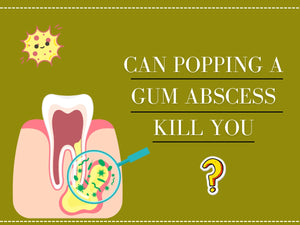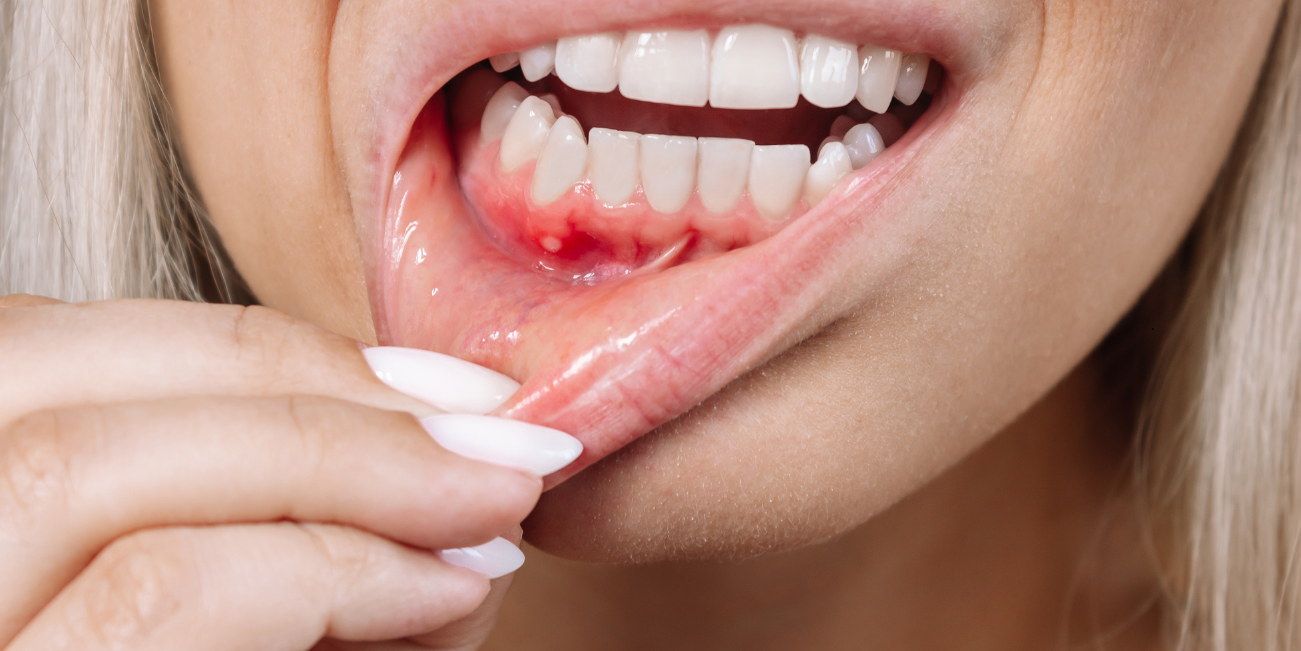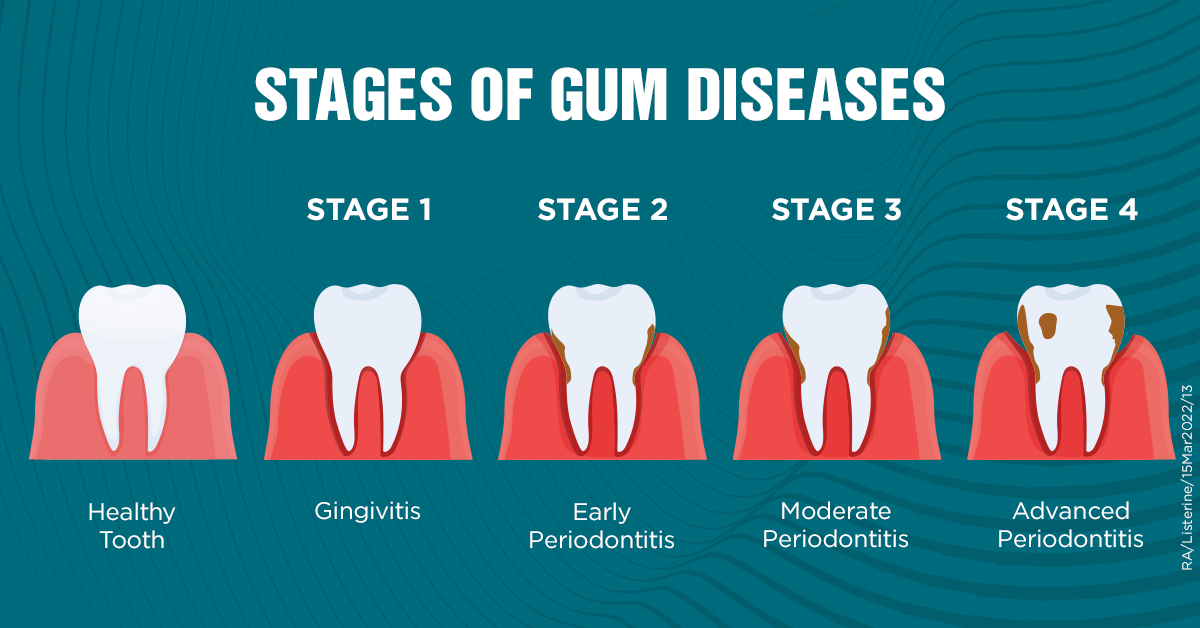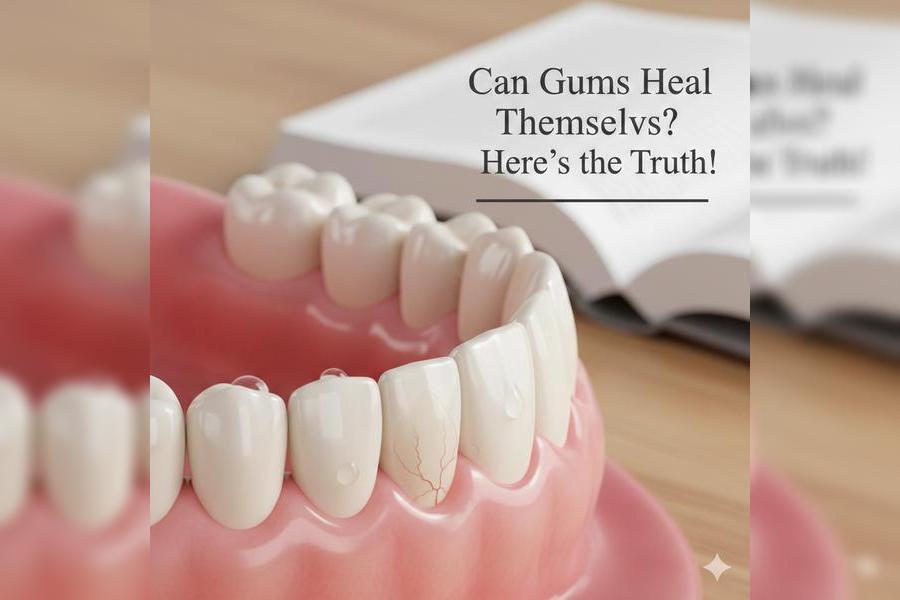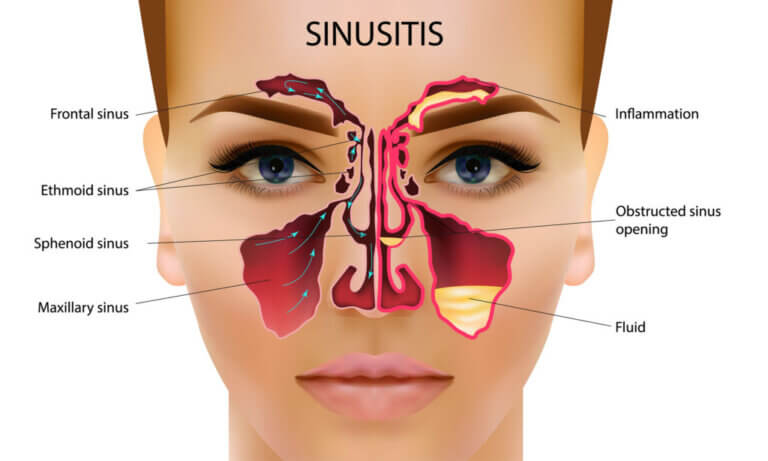Gum disease is not simply the consequence of a couple of missed dentist visits or failure to floss. For many, the question "Is gingivitis hereditary?" isn't just theoretical; it’s personal. If you've noticed gum problems running in your family, you're not alone.
New evidence indicates that genes are indeed a factor in how vulnerable you are to developing gingivitis, however, it’s not the whole story. The positive thing is? None of that has to be your destiny when it comes to oral health in a family when you treat it well.
Before we get into this, let us put the hereditary aspect of gingivitis to light, how to identify it early and natural ways to safeguard your gums using scientifically proven resources, some of which are super effective natural remedies.
What is Gingivitis? The Basics Everyone Should Know
The initial stage of gum disease is gingivitis which is constituted by swelling, redness, inflammation and even bleeding of the gums. It occurs when plaque - sticky coating of bacteria, builds up along the gum line and activates an immune response.
The sneaky part about gingivitis is that it could be painless in the early onset. Most carry it in their mouths month after month (or year after year) oblivious to the fact that their gum tissue is wasting away.
Without treatment, gingivitis may develop into periodontitis which would cause loss of the teeth and even impact systemic status.
Is Gingivitis Hereditary? The Short Answer
Yes, It Can Run in the Family
So, is gingivitis hereditary? The quick answer is yes. You may be predisposed to gum disease by genes. However, it is necessary to clarify that heredity does not develop gingivitis in isolation. It merely exposes you to greater sensitivity to the bacteria and inflammations that cause it. Here is how to think of it; your DNA may unlock the door but it is the habits in your lifestyle that show gum disease a welcome mat and allow it to stick around.
In case you or both of your parents have issues related to the gums, it is possible that you inherited some biological characteristics of your gums to be weaker. This forms poor immune response, increased retention of plaques or even inflammatory gene indicators that hyper-respond to oral bacteria.

What Exactly Gets Inherited?
Scholars have actually branded some particular gene polymorphisms - mutation in the DNA sequence, that determines ways your body responds to dangerous bacteria in your mouth. These consist of the genes involved in production of cytokines (chemicals of inflammation), collagen metabolism (which influences healing of gum tissues), and immune control.
When inherited, these genes have the capability to induce the ideal storm of early-stage or vigorous gingivitis.
Individuals who possess these genetic characteristics have a tendency to develop indicators of gum disease at an earlier age even with proper oral care. This is the reason why every now and then, there are people who experience bleeding or inflamed gums even though they regularly brush their teeth, floss and use mouthwash.
But Heredity Is Only One Piece of the Puzzle
The answer to the question: is gingivitis hereditary is broad. The genetics is like loading the gun yet its environmental and behavioral triggers that are pulling the trigger. You may have a genetic tendency towards gum problems but unless you have bad brushing techniques, smoking, added pressure or a sugar-heavy diet those genes just might never get to shine. On the contrary, individuals whose parents have never had gingivitis may become infected, provided they do not take good care of their mouth.
That is why it can be useful to know your family history, yet it is not a last resort. The silver lining? Although gingivitis is a family thing, a strong oral care routine (with natural agents thrown in the mix to battle inflammation) can keep you a few steps ahead.
Genetics And Gum Health: What Science Says
The Role of Your DNA in Gum Disease
There is mounting scientific evidence suggesting that gum health relies on more than brushing and flossing, it also depends on what is in your genetic code. Although gingivitis develops due to the presence of plaque, how your body reacts to the plaque in your mouth is also dependent on your genetics.
According to the American Academy of Periodontology, about 30% of the population may have a genetic susceptibility to periodontal diseases, including gingivitis. These individuals are more likely to develop gum inflammation even when practicing good oral hygiene.
Genes That Matter in Gum Health
Researchers have identified several gene groups associated with increased risk of gum disease:
- Cytokine genes (such as IL-1, IL-6, TNF-α): These influence how aggressively your body responds to bacterial buildup. Overproduction leads to chronic inflammation.
- Immune response genes: A poorly regulated immune system may fail to stop harmful bacteria or may overreact, damaging healthy tissue.
- Collagen-related genes: These affect how well your gums can rebuild and maintain structural integrity after bacterial attacks.
A person with these genetic traits may experience:
- More frequent gum bleeding
- Higher susceptibility to tartar buildup
- Faster progression from gingivitis to periodontitis
- Receding gums, even with minimal plaque
Genetic Testing for Periodontal Risk
Today, genetic tests are available that analyze your specific periodontal risk markers. These tests are still not part of routine dental check-ups, but they are useful for those with a strong family history of gum disease or unexplained oral health problems.
What these tests can uncover:
- Presence of pro-inflammatory gene variants
- Risk level of aggressive periodontitis
- Likelihood of future bone loss in the jaw
While not a replacement for professional diagnosis, genetic testing can offer insight and help dental professionals customize your treatment plan based on your biological needs.
Why Your Environment Still Matters
Even if you’re genetically predisposed, lifestyle choices remain a crucial factor. In many cases, people with “high-risk” genes never develop gum disease simply because they maintain an exceptional oral care routine. On the other hand, someone with “low-risk” genes can still develop gingivitis if they smoke, eat poorly, or skip flossing.
Bottom Line
So, what does science say? Is gingivitis hereditary or not?
In a nutshell, your genetic makeup can influence your vulnerability, but your habits decide the outcome. Think of it as a team effort between your biology and your daily choices. The better your oral care, the more you override any genetic disadvantages.
Risk Factors: Hereditary Vs. Lifestyle
To better understand how much of gum disease is in your DNA vs. your habits, here’s a side-by-side comparison:
|
Hereditary Risk Factors |
Lifestyle & Environmental Risk Factors |
|
Genetic predisposition to gum inflammation |
Inadequate brushing and flossing |
|
Family history of periodontal disease |
Smoking and tobacco use |
|
Immune system irregularities |
Poor diet (high sugar, low nutrients) |
|
Genetic disorders (like diabetes) |
Stress and hormonal fluctuations |
|
Variations in saliva composition |
Skipping dental cleanings |
As you can see, your genes may increase your risk - but they don’t write your oral health destiny.
Signs That Gingivitis Might Be in Your Genes
Have you ever been thinking... Why are my gums swollen or even bleeding yet I wash my mouth properly? Your genes are probably more to blame than you might have imagined! Certain individuals are genetically more susceptible to gum inflammation since they have certain inherited factors such as the immune response, salivary composition, and the capacity to handle bacterial biofilm.
Even though you won't be able to pass a lab test at home and confirm that your gingivitis was inherited, some trends and their symptomatology may act as red flags, particularly, when they are hereditary or indicate themselves early.
Common Signs of Hereditary Gingivitis
Bleeding gums: Bleeding gums are not only a sign of gum plaque. When your gums start to bleed with the least pressure of your toothbrush or a piece of floss, that is a sign that something is wrong. Patients of genetic sensitivity to inflammation tend to have fragile capillaries and a hypersensitive immune system, so their gums will tend to bleed more even in the case of regular oral care.
Persistent bad breath that lingers despite regular cleaning: Chronic halitosis (bad breath) isn’t always about what you ate for lunch. Brushing, flossing, and rinsing, but still facing the problem of bad breath, may be an indication that you have gum inflammation that runs deep - it might be that your body has a poor track record in handling bacteria effectively because of inherited weak immune systems.
Dark red swollen, swollen or puffy gums that do not respond readily to cleaning: While a little inflammation is normal, gums that chronically remain swollen or dark in color in spite of cleaning or antiseptic rinsing, may be responding genetically encoded to some bacteria component that does not cause a problem of other people. Gums of some people are more receptive to the lesser amounts of plaque, continuously bothering.
Sensitivity to hot, cold, or acidic foods and drinks: If you wince every time you sip a cold drink or bite into something citrusy, it might be a sign that your gum tissue is thinning or receding, exposing sensitive tooth roots. Genetics can influence how quickly gum tissue breaks down or how resilient your tooth enamel is to environmental triggers.
Visible gum recession that seems disproportionate to your age: Receding gums are a hallmark of advancing gum disease - but if you’re experiencing this in your 20s or early 30s, it could point to a genetic form of early-onset periodontitis, which typically starts with gingivitis that goes undetected or untreated.
A family history of gum disease or tooth loss without major decay: If your parents, grandparents, or siblings have lost teeth due to gum issues rather than cavities, it’s time to take that family pattern seriously. Gum disease isn’t contagious, but genetic vulnerability absolutely is.
Recurrent gum infections or frequent dentist visits despite good care: Do you feel like you’re doing everything right? Brushing, flossing, using mouthwash, and still find yourself needing frequent professional cleanings or treatments? You might be up against a biological resistance to bacterial control, inherited from your family line.
Pay Attention to the Patterns
The existence of one or two of these symptoms does not mean that it is genetic, although when several of them consistently appear, particularly those that affect your immediate relatives, you need to talk to your dentist regarding how you need to address the issue with your increased risk of getting it. Preventive care as early as possible gives you a chance to prevent gingivitis progression into severe gum disease.
How Bacteria And Genetics Work Together
Here’s where things get interesting: oral bacteria alone don’t cause gum disease. It’s how your immune system responds to that bacteria that makes the difference.
In people with a genetic predisposition, the immune response can be:
- Hyperactive, causing excessive inflammation and gum damage.
- Hypoactive, failing to eliminate the bacteria, allowing it to thrive.
Either case results in gum inflammation, recession, and, eventually, tooth loss, unless you intervene with effective, consistent care.
Daily Gum Care: Your Best Defense Against Hereditary Gingivitis
Even if gingivitis runs in your family, good oral hygiene can tip the scales in your favor. Here’s what a strong daily routine looks like:
- Brush twice daily with a soft-bristled toothbrush.
- Floss once a day, preferably before bed.
- Use an antibacterial mouthwash to reduce plaque.
- Clean your tongue to minimize bacterial buildup.
- Schedule dental cleanings at least every six months.
If your gums feel tender or bleed easily, it may be time to elevate your oral care regimen.
Why Natural Ingredients Matter in Gum Health?
If you’re genetically predisposed to gingivitis, you may benefit even more from natural, inflammation-reducing solutions. Enter: Omega oils, neem, and clove - a trio known for their powerful oral health properties.
- Omega-3 and Omega-9 oils reduce gum inflammation and help repair tissue.
- Neem oil, a staple in Ayurvedic medicine, has antibacterial and antifungal properties that target plaque-causing bacteria.
- Clove oil is a natural analgesic and antiseptic - great for easing pain and eliminating germs.
If you’re dealing with bleeding gums, tooth sensitivity, or a history of oral infections, consider incorporating a natural gum-support formula into your daily care routine. A blend of omega-rich oils and botanicals like clove and neem doesn’t just soothe irritated gums; it helps restore balance and strength from the root.
When to Seek Professional Help
You should never ignore:
- Persistent bleeding after brushing.
- Loose teeth or receding gums.
- Foul breath that won’t go away.
- Pus or signs of infection around the gums.
Even if you’re using the best natural remedies, professional dental care is still essential. Catching gingivitis early means faster healing and fewer complications down the road.
FAQs About Hereditary Gingivitis
1. Is gingivitis hereditary or caused by poor hygiene?
Both. Genetics may predispose you to the disease, but lifestyle and hygienic practices plays a major role in determining your fate.
2. Can gingivitis be cured if it runs in the family?
Yes, gingivitis is reversible in its early stages, even for those with a genetic predisposition. The key is consistent care and inflammation control.
3. What natural ingredients help fight hereditary gum disease?
Seek out natural solutions that include omega-3, omega-9, neem oil and clove oil. These components help in the recovery of gum tissue and they decrease the bad bacteria. You can try our gum disease oral solution since it contains all of these components.
4. Should I get genetic testing for gum disease?
Some dentists might provide genetic screening, though this is not a regular practice. It particularly comes in handy when your family history records high levels of periodontitis.
5. Can children inherit gum disease?
The risk factors may be inherited, yes. This is why teaching children about good oral habits at early age is very important and in families where gingivitis occurs.
6. How fast does hereditary gingivitis progress?
It varies. Without intervention, it can escalate to periodontitis within months or years. Catching it early is key.
7. What’s the best treatment for hereditary gingivitis?
The most effective long-term effects are achieved by a combination of professional dental cleanings, daily brushing/flossing and using daily anti-inflammatory plant-based oral products.
Outlook
So, is gingivitis hereditary? Yes - but it’s not a hard and fast rule. Think of it more like a warning sign on the road ahead. You can take the right turns, slow down, and stay in control. With the right dental hygiene, regular check-ups, and the addition of natural, omega-rich oral care blends such as The Goodbye Company Gum Disease solution to your routine, you can protect your gums for the long haul - no matter what your genes say.



